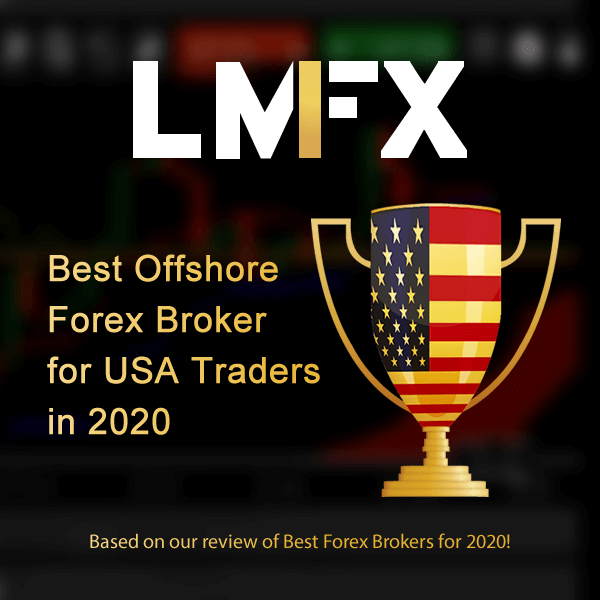To Search for and compare Forex Brokers, use the Advanced Search feature to refine your search results. View the brokers profile to see a detailed list of their features.
About ASIC Regulated Brokers
The Australian Securities and Investments Commission (ASIC) is one of the oldest and well-seasoned regulatory authorities in the world. With the full backing of the Australian Government and a well-established Western liberal democracy, ASIC offers a regulatory environment for Forex brokers that balances being business-friendly, but at the same time, enforces strict rules to protect investors.
Unlike some of the regulators, yes, talking about the United States-based Commodity Futures Trading Commission (CFTC) and the National Futures Association (NFA), ASIC does not enforce unrealistic (bordering on draconian) rules that hamper the process of running a successful Forex brokerage business in Australia. That's why almost all major brokerage companies operating in the Forex market have opened up offices to be regulated under the Australian Securities and Investments Commission.
Why Traders Should Pick the Regulatory Authority Before Picking a Forex Broker
When it comes to picking a Forex and CFD broker, the most important thing to look for is which regulatory authority is watching out for you. A Forex broker’s marketing team can develop the best-looking website in the industry, offer you the right trading platform, and shower you with a welcome bonus to win your business.
But, if things go south, you need to make sure that you can trust the regulator to keep your investment safe. Also, even when things are going well, you need to feel safe that the regulator and the licensing authority are regularly auditing the brokers and protecting you from all of the sorts of business malpractice that sometimes goes on in the Forex industry.
In the end, if you feel that your Forex broker has not been totally fair about how it treated you as a Forex trader, the regulatory authority would be your last resort to remedy the situation. So, before you pick a broker, you need to make sure that the regulator will take your complaint seriously and they will actively work on your side to resolve any disputes that may arise in the future.
What Makes ASIC Stand Out Against Other Forex Regulators in the Industry
There are several factors that you should keep in mind before evaluating a Forex regulator. The first one is, what type of political climate the regulator operates in. A regulatory authority might have all the consumer protection rules to safeguard your interest, but can it protect itself from political pressure? Forex brokers are often big businesses and may have the money to lobby the Government to make the playing field uneven.
But ASIC is unique in the sense that it is based in Australia, a country with a long history of democratic tradition and political stability. Also, the presence of a strong civil society in Australia makes it unlikely that the Government will interfere in the day-to-day operation of an independent organization like the ASIC.
The second factor that provides ASIC with a leg up is how Australia is economically stable. The last recession Australia experienced was 27 years ago. Most young people in the country do not even have the experience of looking for jobs during a recession!
The economic stability of a country is very important before investing money in a company based in that country. Just think for a moment, would you prefer to invest in a Forex broker with a billion-dollar operating capital in Venezuela or a company operating with only ten million dollars in Australia? The obvious answer is you pick a company that is based in a functioning democracy with a stable economic outlook; in this case, Australia.
Key Factors that Makes ASIC a Safe Choice as a Regulatory Authority
ASIC imposes some key regulatory measures when issuing a Forex brokerage license. But, as we discussed above, these measures are balanced to create a win-win situation in the market for both Forex traders and the brokers.
Safety of Funds
In order to assure the safety of the invested capital, the ASIC requires all Forex and CFD brokers operating under its jurisdiction to keep the client’s funds in a segregated bank account. This rule prevents Forex brokers from mixing their operational funds with client’s deposits. It means that any investment made in the company, paying employee salaries, or exposure to market risks are not paid for by traders’ deposits.
Hence, in case of business failure or bankruptcy of the broker, the client's deposits remain separated and it ensures the safety of the capital.
No First in First Out (FIFO) Rule
Unlike regulators based in the United States, the ASIC does not enforce the FIFO rule. With FIFO, a client’s order is placed in the market based on when the order was placed. So, if you bought an asset an hour ago and sell the same amount an hour later with a separate order, under FIFO rules, the broker must liquidate the first order before placing the second order.
With no FIFO rule, Forex brokers operating under the ASIC regulatory framework can allow Forex traders to hedge their positions. This is a key factor for many Forex traders to pick a broker based in Australia.
No Restrictions on Leverage
When it comes to leverage, U.S. based Forex brokers are limited to offering 50:1 maximum leverage to traders for major currencies. Similar leverage restrictions are placed by regulators all around the world.
In recent months, ASIC has proposed limiting the effective leverage of certain assets, but as of today, there are no restrictions on brokers. Hence, many Forex brokers continue to offer lucrative leverage levels from 100:1 to 500:1 to their clients.
Brokers Must Provide Fast and Efficient Trading Conditions
Forex brokers in Australia need to provide platforms that can execute fast transactions without any interference from the broker. It means, Forex brokers are required by law not to meddle in the price feed or be slow at filling client orders in the interbank market.
No Conflict of Interest
Brokers operating under the ASIC regulation are prohibited from trading against clients. It means a broker-dealer cannot be the counterpart to a trade. This rule eliminates all doubts about whether your broker has your best interest in mind as it eliminates all doubts about any potential conflict of interest.
Customer Satisfaction Must be Ensured
The ASIC mandates that Forex brokers take customer complaints seriously and deal with any problem in a timely manner. In a sense, to operate as a Forex broker in Australia, all brokers have to invest heavily in customer support and ensure customer satisfaction.
Brokers Need to Prove Financial Viability
All companies applying to be regulated by the ASIC need to prove that they have secured at least 1 million Australian Dollars’ worth of operating capital. This financial requirement ensures that Forex brokers are well funded to deal with any short-term cash flow issues and equipped to handle the sudden change in markets due to exposure issues.
Forex Brokers Must Have A Representative in Australia
There are few places, mostly small Island nations, that allows brokers to be registered without having any physical office in the country. But not in Australia. All brokers applying for a Forex and CFD brokerage license in Australia must prove that they have a local representative office with ample staff to support the operation.
Hence, most reputed brokers end up setting up complete offices. This way, traders can be sure that if something wrong, they can simply visit an office and deal with any problems personally, if needed.
ASIC Conducts Regular Audits
Forex brokers operating in Australia are required by law to cooperate with the ASIC officials and provide all financial records for regular audits. With these regular audits, ASIC ensures that there is nothing improper going on with a broker's operation. This acts as a preventive measure and ensures the safety of clients of the broker.
ASIC Takes Complains About Brokers Very Seriously
While ASIC is a licensing authority and only acts in the interest of the public, not individuals, they do take complaints very seriously. Each and every complain is recorded and online queries are usually replied within 3 business days!
The ASIC lists two separate phone numbers, 1300 300 630 within Australia and + 61 3 5177 3988 outside Australia, for dealing with the public.
The ease of reaching a Government regulatory authority and responsiveness of the ASIC is one the reasons professional traders who invest large amounts of capital choose to trade with ASIC regulated brokers.
Takeaway
Being regulated by ASIC means you can trade with these brokers with a certain peace of mind. Hence, focusing on the fee structure, customer service, and trading platform features are a few of the ways brokers in Australia have to compete to win over traders.
Since almost all the large and reputed brokers have decided to be regulated by the ASIC, it speaks volumes about the business-friendly nature of the regulator. However, it also created a paradox of choice and made it difficult for traders to pick an ASIC regulated broker.
We have invested substantial time reviewing some of the most prominent Forex brokers operating under the ASIC regulation. Under our ASIC brokers' directory below, you will find detailed information about the brokers and their operational details.
asic regulated forex brokers
 Compare Forex Brokers FX Broker Compare Forex Brokers FX Broker |
Headquarters HQ | Founded | Regulation | Min Account | Min Contract | Max Lev | #Pairs | ECN |
|---|---|---|---|---|---|---|---|---|
 Compare Forex Brokers FX Broker Compare Forex Brokers FX Broker |
Headquarters HQ | Founded | Regulation | Min Account | Min Contract | Max Lev | #Pairs | ECN |
|
|
Sydney, Australia | 2011 | ASIC (Australia) | 100 | 0.01 | 500:1 | 30 | |
|
|
Melbourne, Australia | 2009 | ASIC (Australia), CySEC (Cyprus), FCA (United Kingdom), SCB (Bahamas) | 100 | 0.01 | 500:1 | 56 | |
|
|
Sydney, Australia | 2015 | ASIC (Australia) | 100 | 0.01 | 500:1 | 45 | |
|
|
Sydney, Australia | 2008 | ASIC (Australia) | 100 | 0.01 | 500:1 | 60 | |
|
|
Melbourne, Australia | 2017 | ASIC (Australia), VFSC (Vanuatu), FSA (Seychelles) | 0 | 0.01 | 500:1 | 52 | |
|
|
Limassol, Cyprus | 2007 | CySEC (Cyprus), FCA (UK), ASIC (Australia), FSA (Seychelles), FINRA (United States) | 10 | 0.01 | 400:1 | 51 | |
|
|
Sydney, Australia | 2008 | ASIC (Australia) | 100 | 0.005 | 200:1 | 54 | |
|
|
Sydney, Australia | 2004 | ASIC (Australia) | 100 | 0.1 | 100:1 | 28 | |
|
|
Kowloon, Hong Kong | 2001 | ASIC (Australia), SFC (Hong Kong), FSPR (New Zealand) | 1000 | 0.1 | 100:1 | 32 |



















